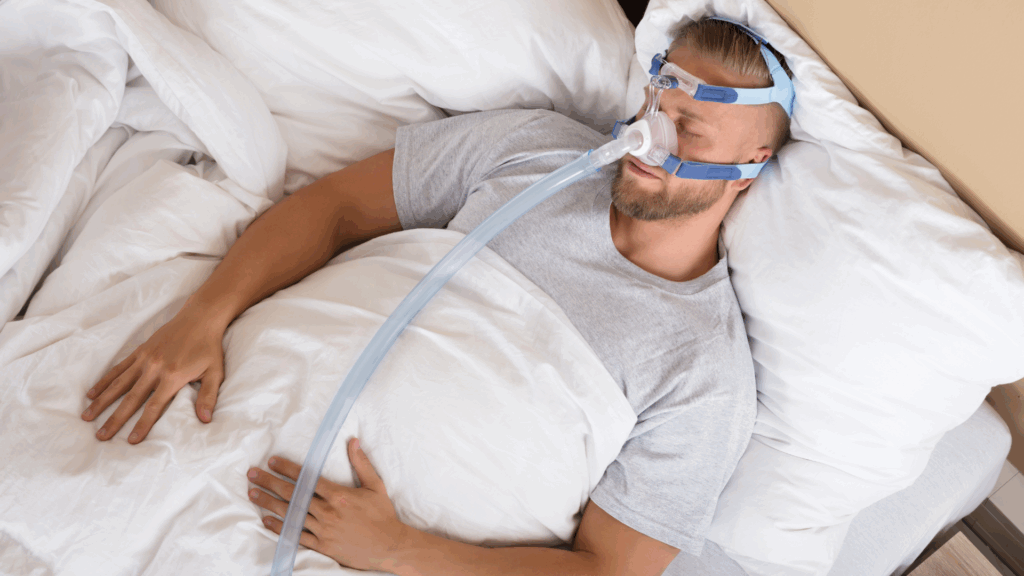Sleep is an essential component of overall health and well-being. However, many individuals struggle with sleep-related issues that can significantly impact their daily lives. In Kogarah, professionals offer tailored solutions through comprehensive sleep studies, helping individuals understand their sleep patterns and address any underlying issues. This article delves into the importance of sleep studies, the process involved, and how Kogarah professionals can help you achieve better sleep.
Understanding Sleep Disorders
Sleep disorders encompass a range of conditions that disrupt normal sleep patterns. These can include insomnia, sleep apnoea, restless legs syndrome, and narcolepsy, among others. Understanding these disorders is crucial for effective diagnosis and treatment.
Sleep study Kogarah are a vital tool in diagnosing and treating sleep disorders. In Kogarah, professionals are equipped to provide tailored solutions that address individual needs, enhancing both sleep quality and overall health. By understanding the importance of sleep and seeking help when needed, individuals can take significant steps towards a more restful and rejuvenating night’s sleep.

Common Types of Sleep Disorders
Insomnia is perhaps the most well-known sleep disorder, characterised by difficulty falling or staying asleep. This can lead to daytime fatigue, irritability, and difficulty concentrating. On the other hand, sleep apnoea involves repeated interruptions in breathing during sleep, which can result in loud snoring and excessive daytime sleepiness.
Restless legs syndrome is another condition that can severely affect sleep quality. Individuals with this syndrome experience an uncontrollable urge to move their legs, often accompanied by uncomfortable sensations. Narcolepsy, a less common but serious disorder, leads to excessive daytime sleepiness and sudden sleep attacks.
The Impact of Sleep Disorders
The repercussions of untreated sleep disorders can be profound. Not only can they affect physical health, leading to conditions such as obesity, diabetes, and cardiovascular disease, but they can also impact mental health. Anxiety and depression are often exacerbated by poor sleep quality, creating a vicious cycle that can be challenging to break. Learn more about depression at https://www.nimh.nih.gov/health/topics/depression
Moreover, the social implications of sleep disorders can be significant. Individuals suffering from these conditions may find it difficult to maintain relationships or perform effectively at work, leading to a decline in overall quality of life. The stigma surrounding sleep disorders can also prevent individuals from seeking help, as they may feel embarrassed or misunderstood. Awareness and education about these disorders are essential in fostering a supportive environment for those affected, encouraging them to seek the necessary treatment and support.
Additionally, the role of lifestyle factors cannot be overlooked when discussing sleep disorders. Poor sleep hygiene, such as excessive screen time before bed, irregular sleep schedules, and high caffeine intake, can exacerbate existing conditions or even contribute to the development of new ones. Implementing good sleep practices, such as creating a calming bedtime routine and ensuring a comfortable sleep environment, can significantly improve sleep quality and overall well-being.
The Role of Sleep Studies
Sleep studies, also known as polysomnography, are essential in diagnosing sleep disorders. These studies monitor various physiological parameters during sleep, providing valuable insights into an individual’s sleep patterns and behaviours. They can help identify conditions such as sleep apnoea, restless leg syndrome, and narcolepsy, which can significantly impact one’s quality of life if left untreated.
What to Expect During a Sleep Study
When undergoing a sleep study, individuals typically spend the night at a sleep clinic. During this time, various sensors will be attached to monitor brain activity, heart rate, breathing patterns, and muscle activity. The data collected allows healthcare professionals to analyse sleep stages and identify any abnormalities. The environment is designed to be as comfortable as possible, with soft lighting and soundproofing to minimise disturbances, ensuring that participants can sleep as naturally as possible.
For those who may find it challenging to spend a night in a clinic, home sleep studies are also available. These studies utilise portable monitoring devices that can be used in the comfort of one’s own home, making the process more convenient. Home studies are particularly beneficial for those who experience anxiety in clinical settings or have difficulty sleeping away from home. However, it is important to note that while home studies can be effective, they may not capture the same level of detail as in-lab studies, particularly for complex sleep disorders.
Benefits of a Sleep Study
One of the primary benefits of a sleep study is the accurate diagnosis of sleep disorders. With the data collected, professionals can tailor treatment plans to address specific issues. This personalised approach increases the likelihood of successful outcomes, allowing individuals to regain control over their sleep and overall health. Additionally, sleep studies can uncover underlying health issues that may not be immediately apparent, such as cardiovascular problems or metabolic disorders, providing a more comprehensive view of an individual’s health status.
Moreover, the insights gained from sleep studies can empower individuals to make informed lifestyle changes. For instance, understanding the specific factors contributing to poor sleep can lead to modifications in sleep hygiene practices, such as establishing a consistent sleep schedule, creating a restful environment, or addressing dietary habits that may interfere with sleep quality. Ultimately, the knowledge gained from a sleep study can be a catalyst for positive change, enhancing not only sleep but also overall well-being.
Tailored Solutions Offered by Kogarah Professionals
In Kogarah, a range of professionals are dedicated to providing tailored solutions for sleep disorders. These specialists work collaboratively to ensure that individuals receive comprehensive care tailored to their unique needs.

Individualised Treatment Plans
After a sleep study, healthcare professionals will analyse the results and develop an individualised treatment plan. This may include lifestyle modifications, cognitive behavioural therapy for insomnia, or the use of continuous positive airway pressure (CPAP) machines for those diagnosed with sleep apnoea. Click here to find more about pressure.
Moreover, nutritional advice may also be part of the treatment plan, as diet can significantly affect sleep quality. Professionals can guide individuals on foods that promote better sleep and those to avoid.
Ongoing Support and Follow-Up
Another critical aspect of the tailored solutions offered in Kogarah is ongoing support. Sleep disorders can be complex, and treatment may require adjustments over time. Regular follow-up appointments allow healthcare providers to monitor progress and make necessary changes to the treatment plan.
In addition, support groups and educational workshops may be available, providing individuals with a platform to share experiences and learn from others facing similar challenges. This community support can be invaluable in the journey towards better sleep.
How to Get Started with a Sleep Study in Kogarah
Taking the first step towards better sleep can seem daunting, but the process of getting a sleep study in Kogarah is straightforward. Here’s how to begin.
Consultation with a Healthcare Professional
The first step is to consult with a healthcare professional. This could be a general practitioner or a specialist in sleep medicine. During this consultation, individuals can discuss their sleep issues, symptoms, and any relevant medical history.
Based on this initial assessment, the healthcare professional may recommend a sleep study if they suspect a sleep disorder. They will provide information on what to expect and how to prepare for the study.
Preparing for Your Sleep Study
Preparation for a sleep study is relatively simple. Individuals are usually advised to avoid caffeine and alcohol on the day of the study, as these substances can interfere with sleep patterns. It’s also essential to maintain a regular sleep schedule leading up to the study to ensure accurate results.
On the night of the study, individuals should bring any personal items that may help them feel comfortable, such as pyjamas or a favourite pillow. The goal is to create a relaxed environment that mimics their usual sleep setting as closely as possible.
Conclusion
For anyone struggling with sleep issues, reaching out to a healthcare professional and considering a sleep study is a proactive step towards reclaiming the benefits of a good night’s sleep. With the right support and tailored solutions, restful nights and refreshed mornings are within reach.
Learn more on: No More Guesswork Explore a Sleep Study Perth to Finally Wake Up Refreshed
